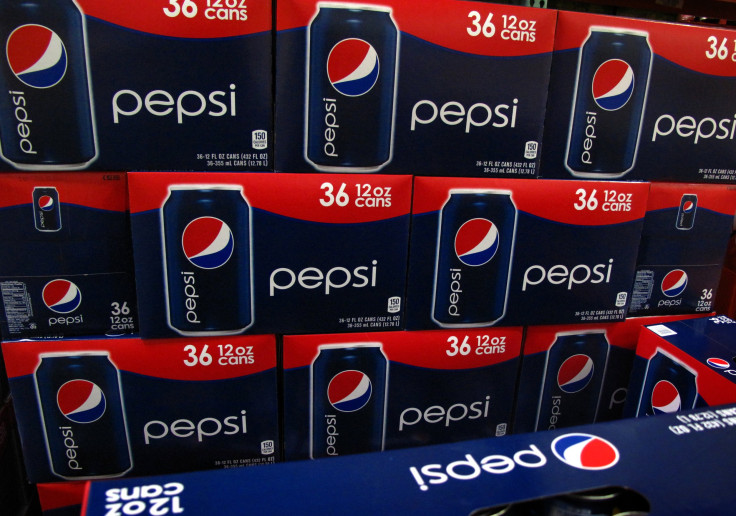Pepsi (PEP) Q3 Earnings Preview: Profit Down As Strong Dollar, High Costs, Weak US Beverage Sales Offset Solid Snacks Business

PepsiCo Inc. (NYSE:PEP), one of America’s largest sellers of snacks and drinks, will report a 3 percent decline in third-quarter profit as persistent weakness in its domestic beverage market, a strong dollar and higher costs offset robust snack sales.
The Purchase, N.Y., company reports earnings on Wednesday before the market opens and one day after its archrival the Coca-Cola Company (NYSE:KO) reports. Analysts polled by Thomson Reuters expect net income of $1.84 billion, or $1.17 per share, compared with $1.89 billion, or $1.20 per share, in the year-ago quarter. Revenue is expected to increase 1.9 percent to $16.96 billion.
A strong dollar, especially in emerging countries, could slice 1 percent off profit margins after late summer volatility, Barclays PLC (LON:BARC) said in a note.
Barclays also said slightly higher revenues, growing 2.9 percent in the July-through-September quarter by the bank's estimates, will be offset by commodity costs and higher corporate expenses, leading to a 1.8 percent decline in operating profits, they said.
“The continued step-up in advertising, marketing, R&D and innovation expense … more challenging commodity cost comparisons and adverse FX impact will likely weigh on reported profit and earnings in the quarter,” a Barclays note said.
Goldman Sachs Group Inc. (NYSE:GS) said Frito Lay North America sales were robust in the third quarter, according to a note by analyst Judy Hong, which cited the company's strong market share and aggressive pricing.
The company’s reliance on sales in Brazil and Russia is also a source of worry for third-quarter earnings, she wrote, since those economies have posted slower gross domestic product (GDP) growth of late.
Pepsi has relied on emerging markets in the past several years to lead its growth, as U.S. consumers lose their taste for soft drinks, especially unhealthy ones. Pepsi President Zein Abdalla said in September that revenue from emerging markets is a third of all Pepsi revenue, which is split about evenly between its food and drinks business. Russia and Brazil, along with Mexico, Canada and the U.K., account for about 25 percent of Pepsi’s net revenue, according to the company’s 2012 annual report.
Pepsi has swung unpredictably between small sales boosts and declines in the past several quarters, with recent lows of a 5 percent decline in revenues in the fall of 2012.
“PEP is on pace to underperform the (average share price movement of the) S&P 500 in four of the last five years,” wrote Citigroup Inc. (NYSE:C) analysts in a recent research note. They said an overall market share weakness for big Pepsi brands led to disappointing EPS growth in recent years.
Only two of eight major beverage companies have outperformed the S&P 500 in 2013 so far, underscoring weakness in the industry. Companies in the consumer discretionary spending sector are expected to show slower earnings this quarter compared to the second quarter, according to the PNC Financial Services Group, from 10.4 percent to 6.3 earnings growth.
Investment researcher Morningstar Inc. (NASDAQ:MORN) estimates that Pepsi controls about 64 percent of the U.S. salty snack market, 60 percent of that market in Brazil, and 46 percent in the UK. Morningstar analyst Tom Mullarkey describes Pepsi as “the dominant force in the global snack market.”
Pepsi executives also quashed any talk of a breakup of the business led by activist investor Nelson Peltz, who took a large stake in Pepsi earlier this year, in their last earnings call. Only "tuck-in" acquisitions of less than $500 million will be considered, not any major restructuring of Pepsi’s business units, executives said.
© Copyright IBTimes 2024. All rights reserved.












